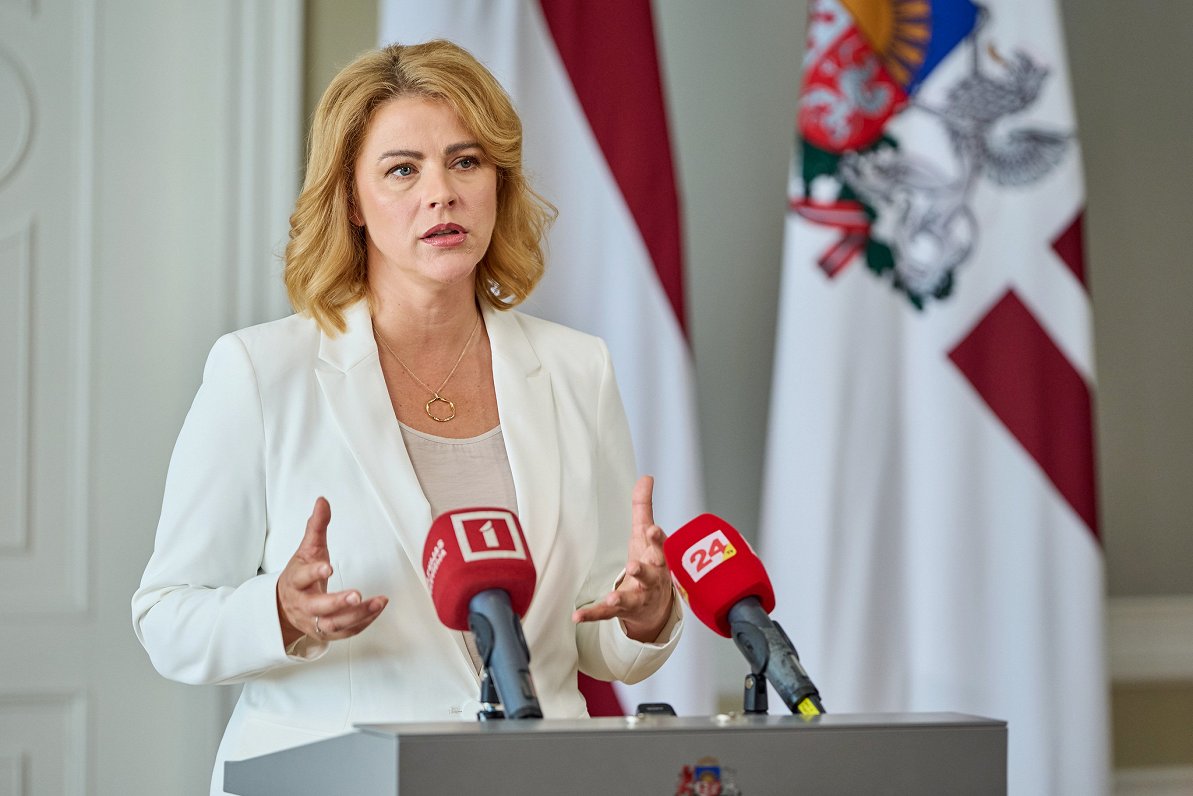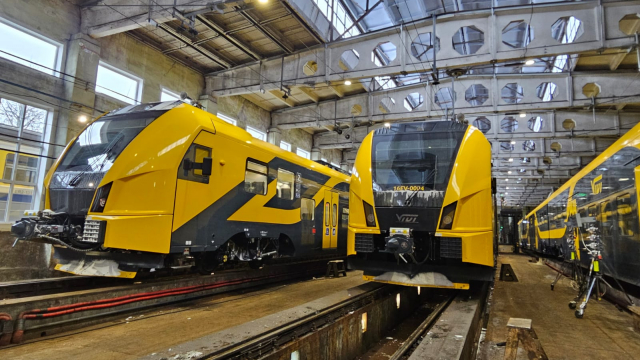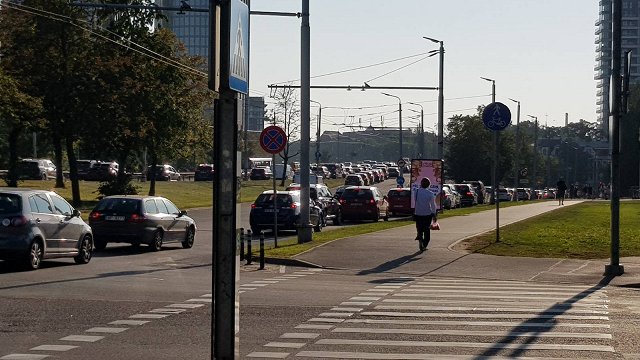Next week, the government will review a report on the implementation of the massive infrastructure project – undertaken alongside Estonia and Lithuania – and decide on the future management of the project, but Siliņa is currently unclear as to how the project, originally slated to cost 5.8 billon euros, could already have a hole in its financing also amounting to billions.
"If I am not sure that everything is legal, I will contact the law enforcement authorities", promised the Prime Minister after talks with President Edgars Rinkēvičs Wednesday.
"This project has grown out of its crib, its legs are sticking out through all the cracks. It is clear that a different management model is needed," said the Prime Minister.
For his part, President Rinkēvičs stated that the discussions on the management and financing of the project will take place not only in the government, but several issues will require the consent of the Saeima, where discussions are also expected.
Rinkevičs emphasized that after the war started by Russia in Ukraine and the changes in the situation in Europe, the military mobility aspect of the project has become very important, and now "you have to look at the security aspect as the most important, it is number one, you have to work so that with as little losses as possible, understanding the problems, the project will nevertheless move forward".
He also added that the other major consideration is the economic aspect and the integration of the Baltic transport system with the rest of Europe.
Last fall, the LTV program "De facto" reported that six years ago the cost of the Latvian section of Rail Baltica was mentioned at around two billion euros, but now it is assumed that it could cost even four times higher.
In March of this year, it was announced that the project lacks approximately 3 billion euros .
Siliņa said on Wednesday that the government will have to understand what financing the project really needs and what the financing model is, after reviewing the report, as they will have to work on different solutions.
Silina admitted that it is clear that European Union (EU) funds and state budget funding for the project will not be enough, so alternatives must be found.
The Prime Minister also expressed that the current project management model was insufficient and the government will have to consider a new management proposal in order to be clear about who is the "owner of the project, who will undertake the obligations, who will put the stations and rails as fixed assets and who will manage the infrastructure".
She also emphasized that she is not ready to simply pay the bills, "the management is not the institution that pays the bills; if there is no certainty that everything is legal, I will turn to the law enforcement authorities," she said.
The Prime Minister also added that it is currently unclear to her how such a lack of necessary funding could have arisen.
The Rail Baltica project envisages the creation of a high-speed railway line of European standard gauge (1,435 millimeters) from Tallinn to the border of Lithuania and Poland, so that it would be possible to connect the Baltic states with other European countries by rail. The line is planned to be 870 kilometers long.
Originally slated to be completed by 2026 at a cost of 5.8 billion euros, Ral Baltica now has a tentative launch date of 2030 and the current estimate for the total cost of Rail Baltica is 7.8 billion euros – though given current trends it would not be surprising if this figure is revised upwards again in the future.
The current project brochure available on the website of the RB Rail joint venture which is responsible for building Rail Baltica notably neglects to mention costs completely, simply stating: "The implementation of the Rail Baltica project is financed by the national states – Estonia, Latvia and Lithuania – and co-funding from the European Union up to 85% of the total eligible costs, in particular in the framework of the Connecting Europe Facility (CEF) funding instrument."
The project has also seen a high turnover of senior executives working on it. The start of mainline construction in Latvia was announced only in recent weeks, which have even seen the bizarre possibility of bypassing Rīga to save money discussed.























